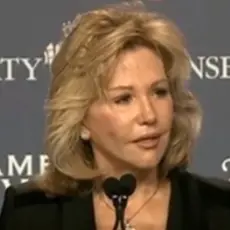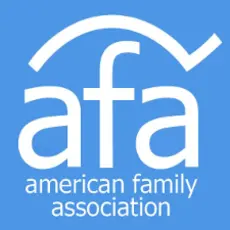A segment on a Religious Right radio show yesterday blamed social media policies designed to protect transgender people from online harassment and the fact that communities of transgender people exist on the internet for the fact that some children come out as transgender.
Tim Graham, executive editor of Media Research Center’s NewsBusters site, and Cathy Ruse, senior fellow of legal studies at Family Research Council, joined American Family Association Governmental Affairs Director Sandy Rios on her weekday morning show on American Family Radio yesterday. Family Research Council and American Family Association are both considered anti-LGBT hate groups by the Southern Poverty Law Center.
During their joint interview, Rios brought up Jazz Jennings, a transgender girl who is the focus of the TLC show “I Am Jazz.” Rios cited the TLC program as part of the “huge role in influencing our children” that media have played regarding LGBT issues in America.
“They laid the groundwork. They have groomed [children] for these moments,” Rios said.
Alluding to an article that Graham co-authored with MRC’s Brent Bozell, Rios asked Graham to expand on the role that social media has supposedly played in encouraging children to transition from one gender identity to another.
“In Twitter, for example, or Facebook, you get punished for saying things that are critical of transgender advocates,” Graham said. “Anything where you basically try to make the point that boys are boys and girls are girls and that’s the way—‘Oh, don’t say it’—that’s the way God made us. These sorts of things, yeah, get you banned or get you temporarily suspended.”
He added, “I mean it’s one thing to say, ‘Oh, well they’re just trying to be anti-hate.’ Statements like ‘boys are boys and girls are girls’ is not a statement of hate, but that’s the way that that ideology processes it.”
Rios asked Ruse a similar question: whether she saw social media influencing children to transition.
“Well there’s no question about that,” Ruse answered, going on to point to a study by Lisa Littman that coined a new term: “rapid-onset gender dysphoria,” which argued that persuasion via social media was a reason that adolescents were coming out as transgender. Almost as soon as it was published, the study was widely criticized as harmful to transgender youth and its reliance on shoddy science. The study relied on reports by parents, and had only a small sample size.
“The number one influence on their daughters was social media,” Ruse said of the parents who took part in the study. “[The author] talks about this being a social contagion. … There are websites apparently teaching kids how to get these hormones without their parents knowing,” Ruse added.
Ruse went on to compare coming out as transgender to developing anorexia.
“This is going to take lives, as well. And I think until we start seeing lawsuits nothing is going to stop this,” Ruse said.








